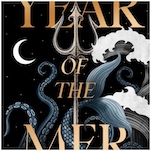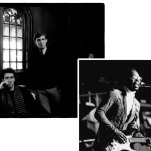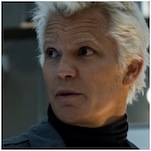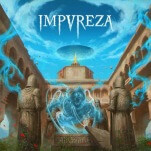Thanks and Sorry and Good Luck by Lee Klein
Rejections from the Eyeshot Outbox
Photo: Henrik Sørenson
A long, long time ago, before Twitter or Facebook or even the Y2K Bug, a literary website called Eyeshot came into the world. The year was 1999. The editor of the site, 20-something writer Lee Klein, lived in Brooklyn.
To get things going, Klein wrote the site’s first few stories under pseudonyms. But within a few years, guided by Klein’s particular tastes, the site regularly featured the likes of Zadie Smith, Daniel Alarcon, Tao Lin and Randa Jarrar. Most established literary outlets had little presence online at the dawn of Internet lit, but upstarts like Eyeshot, Pindeldyboz,and others offered fiction, humor and nonfiction. Writers visited these sites daily to see who got published, as they worked on their own stories for consideration.
I found Eyeshot while living in suburban Atlanta in 2002. I submitted something, and not only did Klein email back right away, he accepted the piece. Even better, his enthusiastic response to the submission filled me with helium.
So I submitted more. Then something else happened: Rejection.
I didn’t just get the cold, two-line, de rigueur dismissal of the literary industry. No form letter here. From Eyeshot, you received a (very) personal email from Klein, just an hour or two after submission of the piece. The email often started off by asking what the hell you were thinking.
Once your vision cleared and you took in the rest of the email, you found that Klein had actually read every sentence in your rejected story. He offered feedback on where things went wrong for him. He’d tack on something about his activities there in Brooklyn. And then he would sign off with a polite thanks, an apology and a request for more submissions.
![]()
If you want to be a published writer, and especially if you live in suburbia, you need someone to tell you the Truth about your work. Klein offered this, free of charge. His brusque honesty hooked me. I didn’t know what he looked like, but I pictured a shorter, wider version of Joey Ramone sitting on the other side of the computer screen, a punk encircled by books and empty coffee cups, cigarette dangling from his lips, voice husky with the weight of his smoky critiques. (Note: He doesn’t look like a hefty Joey Ramone.)
I had no idea at the time if Klein sent bespoke rejections to everyone or just the “lucky” ones. The answer became obvious when Klein started posting collections of his rejections on Eyeshot. These tiny, tight bursts of writing hummed with energy that hopscotched among comical, cruel, warm, demented, high level and nitpicky. Send him a piece of your soul on Microsoft Word, Klein seemed to believe, and you deserved a piece of his soul right back. An amazing little act of generosity, considering the number of terrible pieces of writing out there. (Klein estimates that he has tapped out more than a thousand original rejections.)
A graduate of the Iowa Writer’s Workshop, Klein will publish a novel later this summer, The Shimmering Go-Between (Atticus Books). As a precursor, Barrelhouse Books presents Thanks and Sorry and Good Luck, a 214-page collection of Klein’s best blow-offs, turndowns and tender slaps. A quick read—one email per page—it’ll make the reader cringe, LOL and furrow eyebrows. It contains handsome writing, as well as goofy email prose. And the central character—Klein himself—plays a delightfully erratic, blustery, supportive and hysterical critic to the army of wannabe writers filling up email boxes everywhere.
“Learn to spell FELLATIO!” he implores in one rejection. “I’m not going to post this because it’s not funny at all.”
-

-

-

-

-

-

-

-

-

-

-

-

-

-

-

-

-

-

-

-

-

-

-

-

-

-

-

-

-

-

-

-

-

-

-

-

-

-

-

-








































